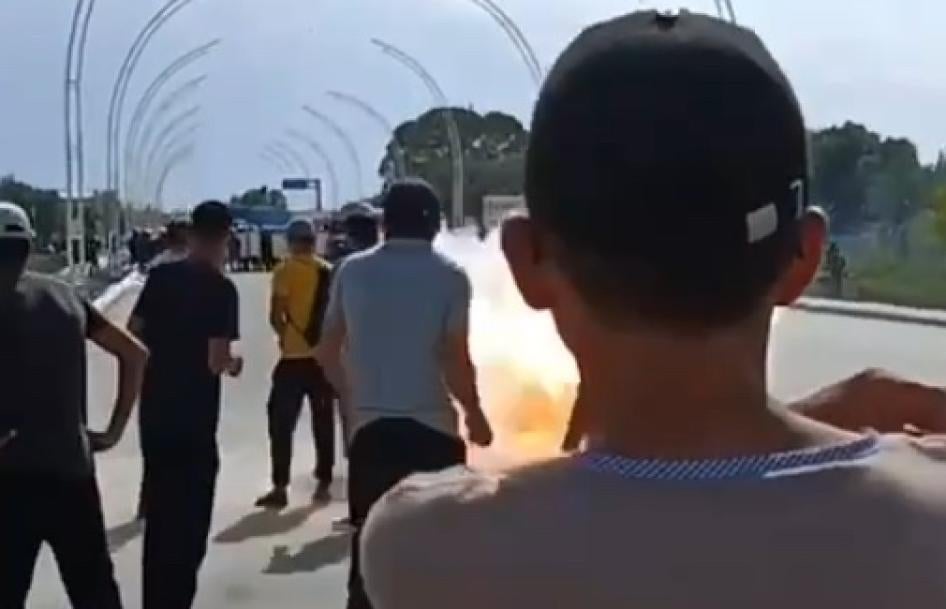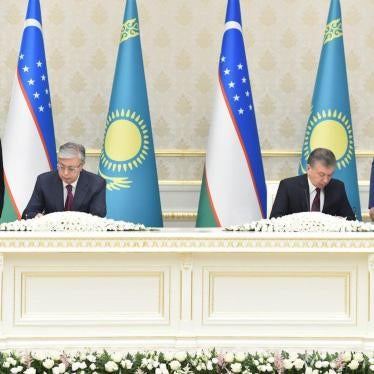This week, the trial began of 22 people accused of various crimes related to street protests in July in Karakalpakstan, an autonomous region of Uzbekistan, that left 21 people dead and hundreds injured.
We now know the names of the defendants and charges against them, but little else about their alleged crimes or the evidence. Media has reported that some defendants, including activist Dauletmurat Tazhimuratov and journalist Lolagul Kallykhanova, have confessed in part or in full.
Authorities have been very secretive about their investigations into the July events. There was no public notice about when the trial would start, or that it would be held in Bukhara, a city outside the vast region of Karakalpakstan, far away from defendants’ relatives and the location where the crimes are alleged to have occurred.
Since early July, when Uzbekistan’s prosecutor general’s office announced that 516 people had been detained and 14 people were under investigation for attempting to overthrow the constitutional order, no Uzbek official has provided updates on the investigation.
It is not clear whether any other Karakalpakstan-related investigations are ongoing. Authorities have not said whether others will stand trial, including whether any security force personnel will be tried for excessive and unjustified use of force that, according to Human Rights Watch’s findings, contributed to some of the deaths and injuries sustained by protesters on July 1 and 2. Of the 22 people on trial, only one is a police officer – the head of the Criminal Investigation Department of the Karakalpakstan Ministry of Internal Affairs.
A commission formed on July 15 and tasked with investigating human rights violations has shared information about its work, but has not issued findings, nor indicated when it plans to do so.
The authorities seem to think that because the trial is “open,” it will be fair. Not so.
Observers sitting in the court room doesn’t mean the trial is fair – far more is needed. Credible questions have already been raised about the judge’s impartiality.
Uzbek authorities should ensure an effective investigation into the events, one that examines all evidence, including possible wrongdoing by security forces, and which makes its findings public, with a view to holding the perpetrators accountable in fair trials before an impartial and independent tribunal.
After an investigation shrouded in secrecy, this “open” trial is not justice.










